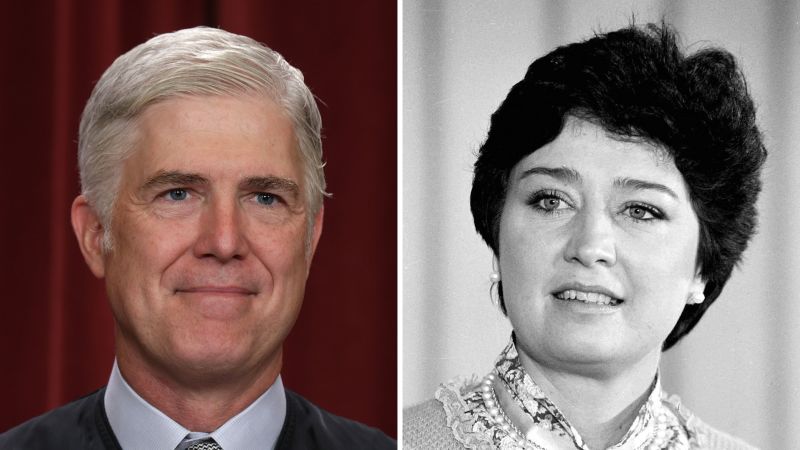Anne Gorsuch, a former chief of the Environmental Protection Agency, cut a flamboyant, defiant figure in early 1980s Washington as she slashed air and water quality regulations.
She fought with environmentalists, was held in contempt by Congress and eventually resigned under pressure from the Ronald Reagan White House that had championed her. Her memoir was, appropriately, entitled: “Are You Tough Enough?”
Her son Neil Gorsuch, a Supreme Court justice since 2017, has shown his own brand of defiance and anti-regulatory fervor.
In recent years, Justice Gorsuch has voted against regulations that protect the environment, student-debt forgiveness and Covid-19 precautions. During a Covid-19 spike in early 2022, Gorsuch was the lone justice who declined to wear a mask while sitting on the bench.
He has led calls on the court for reversal of a 1984 Supreme Court decision that gives federal agencies considerable regulatory latitude and that, coincidentally traces to his mother’s tenure. The Supreme Court will hear a pair of cases on Wednesday testing that 40-year-old case known as Chevron USA, Inc. v. Natural Resources Defense Council, which has become the touchstone for resolving conflicts over agency power.
The issue comes down to Congress’ ability to write open-ended laws that delegate policy details to agency officials. The Chevron principle dictates that when disputes arise over regulation of an ambiguous law, judges should defer to agency interpretations of the law if the interpretations are reasonable.
The Chevron case has steered disputes over countless directives intended to protect the public, such as from air pollution, workplace hazards, risky drugs and medical fraud, or to guarantee certain benefits, such as people with disabilities and elderly.
The Chevron ruling grew out of challenges to EPA…
Read the full article here

Leave a Reply